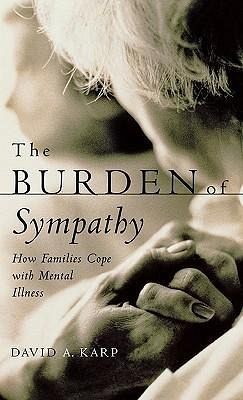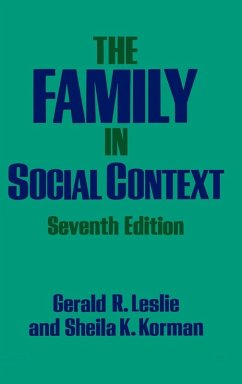
The Burden of Sympathy
How Families Cope with Mental Illness

PAYBACK Punkte
49 °P sammeln!
What are the limits of sympathy in dealing with another person's troubles? Where do we draw the line between caring for a loved one, and being swallowed up emotionally by the obligation to do so? In this vivid and thoughtful study, David Karp chronicles the experiences of the friends and family members of the mentally ill, and how they draw "boundaries of sympathy" to avoid being engulfed by the day-to-day suffering of a loved one. Working from sixty extensive interviews, the author reveals striking similarities in the experiences of caregivers: the feelings of shame, fear, guilt and powerless...
What are the limits of sympathy in dealing with another person's troubles? Where do we draw the line between caring for a loved one, and being swallowed up emotionally by the obligation to do so? In this vivid and thoughtful study, David Karp chronicles the experiences of the friends and family members of the mentally ill, and how they draw "boundaries of sympathy" to avoid being engulfed by the day-to-day suffering of a loved one. Working from sixty extensive interviews, the author reveals striking similarities in the experiences of caregivers: the feelings of shame, fear, guilt and powerlessness in the face of a socially stigmatized illness; the frustration of navigating the complex network of bureaucracies that govern the mental health system; and most of all, the difficulty negotiating an 'appropriate' level of involvement with the mentally ill loved one while maintaining enough distance for personal health. An insightful, deeply caring look at mental illness and at the larger picture of contemporary values, The Burden of Sympathy is required reading for caregivers of all kinds, and for anyone seeking broader understanding of human responsibility in the postmodern world.













